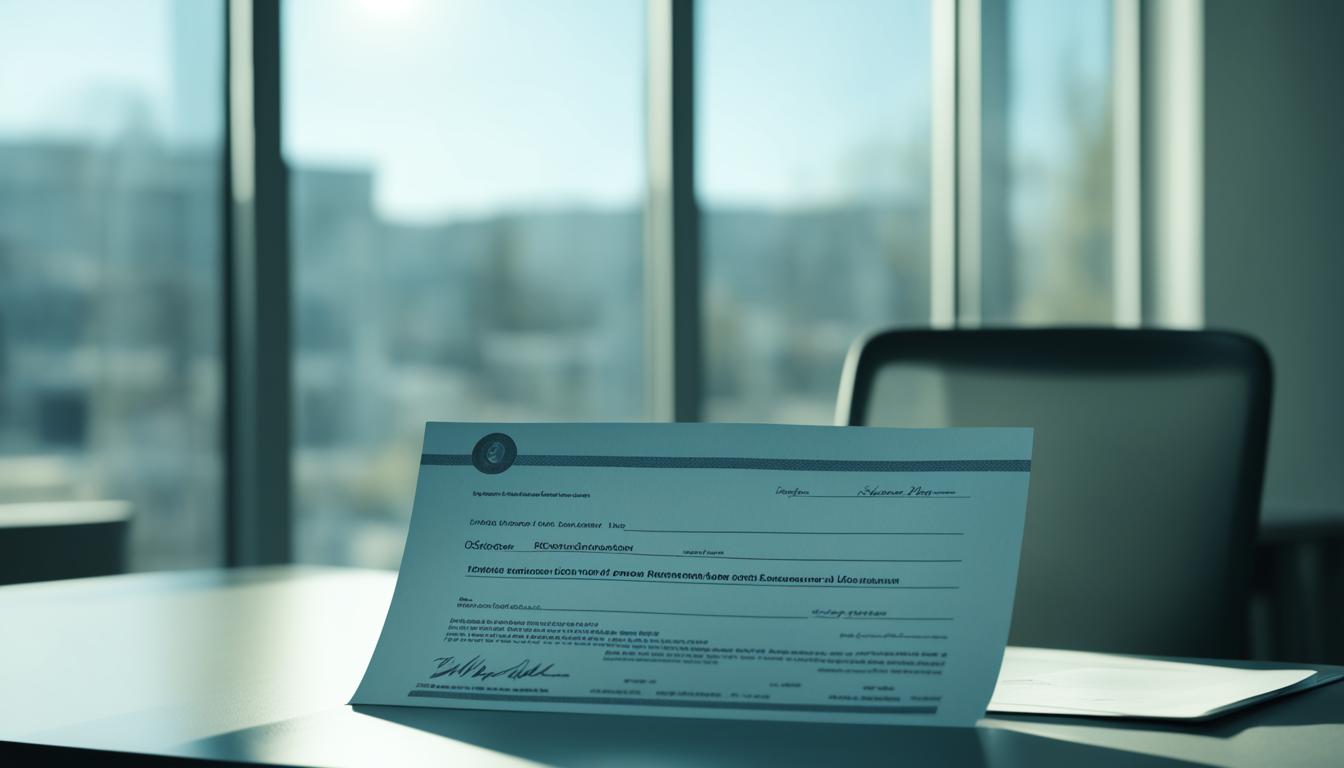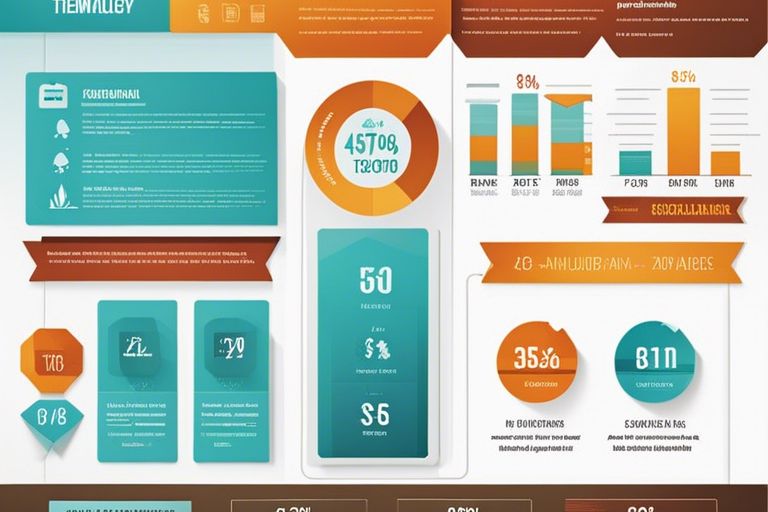what happens to personal loans when the lender dies Many people ponder the fate of their personal loans if the lender dies. It’s essential to grasp the intricacies of borrower-lender dynamics post-mortem. The death of a lender doesn’t nullify the debt; instead, it shifts the responsibility to the borrower. This concept is crucial for anyone involved with personal loans and dealing with a deceased lender. The specifics of how personal loans repayment after lender death unfolds depend on state laws and the loan agreement terms. Therefore, it’s vital to be well-versed in these potential outcomes.
Table of Contents
Key Takeaways
- Debts typically remain with the borrower after the lender’s death.
- State laws can dictate how debts are handled post-lender death.
- Community property states may impose additional responsibilities on spouses.
- Loan obligations may become part of the deceased’s estate assets.
- Not all debts are treated equally; federal student loans are often forgiven upon death.
- Executors of the estate may have responsibilities regarding debt management.
Understanding Personal Loans
Personal loans are a vital financial tool for those needing funds for personal reasons. They are often used to cover unexpected expenses, such as medical bills or legal fees. The question often asked is, What is a personal loan? These loans are unsecured, meaning they don’t require collateral, unlike secured loans like mortgages.
Processing personal loans is typically swift, with most banks depositing funds within 24 to 48 hours. This rapid process can be crucial in emergency situations. To apply for a personal loan, one must provide essential documents, including identity proof, income tax returns, address proof, and proof of income.
The flexibility in repayment terms is another attractive aspect. Personal loan terms can vary from one year to five years, allowing borrowers to choose a term that fits their financial situation. If a borrower has a co-signer, the bank may pursue this individual for repayment if the borrower defaults.
Insurance coverage is a significant consideration. If the borrower had an insurance policy before passing away, the insurer will repay the loan. In cases where the borrower leaves assets, banks may take legal action to recover the loan amount, illustrating the complexities of personal loans.
Understanding personal loans is crucial for discussing what happens to these loans when the lender passes away. It highlights their importance in financial planning and responsibility.
| Aspect | Details |
|---|---|
| Processing Time | 24 to 48 hours |
| Required Documentation | Identity proof, ITR statements, address proof, income proof |
| Repayment Tenure | 1 to 5 years |
| Co-signer Responsibility | Bank can recover from co-signer |
| Insurance Coverage | Insurance company responsible if a policy exists before death |
General Process When a Lender Dies
Understanding the lender death process is crucial for anyone dealing with loans. When a lender dies, their financial responsibilities are taken over by an executor. This person manages the deceased’s estate, which includes assets, debts, and any outstanding personal loans. The estate then follows state laws for distributing assets and paying off debts.
Creditors have a brief window—usually three to six months—to claim against the estate after the lender’s death. This highlights the importance of proper financial management of the deceased’s assets. If the estate can’t cover all debts, family members are not usually liable. However, they might lose any inheritance they could have received.
The executor must notify lenders and other relevant parties about the borrower’s death within 30 days. Not doing so can result in late fees and even foreclosure. Lenders may ask for specific documents like a death certificate or executor papers to handle the loans properly.

In community property states, the situation gets more complicated. Spouses may be jointly responsible for debts from the marriage. It’s crucial for borrowers and their families to know what happens to personal loans when a lender dies. If someone inherits property with a mortgage, they might need to prove their financial stability to take over payments. Selling the property might be the best option if the heir can’t afford the mortgage or doesn’t want to assume the loan.
What Happens to Personal Loans When the Lender Dies
When a lender passes away, it brings up crucial questions for borrowers about their financial duties. Generally, I am still on the hook for repaying personal loans after the lender’s death. The estate of the lender takes over the responsibility of managing any outstanding debts.
Implications for Borrowers
After a lender’s demise, understanding personal loans inheritance is vital for borrowers. My duty to repay the loan does not cease. Unless I co-signed or had a joint account, the deceased lender’s debts do not automatically become mine. Hence, the primary financial burden rests with the lender’s estate.
- If there’s no co-signer or joint obligation, the loan often belongs solely to the estate.
- Unsecured debts, such as personal loans and credit card balances, may go unpaid if the estate lacks sufficient funds.
- Should my lender have issued secured loans, the collateral may be reclaimed by the estate to settle debts.
Lender’s Estate Responsibility
The assets within the lender’s estate are accountable for collecting any outstanding loans. This process involves verifying the debt, which lenders must do by providing detailed information about the loan in their initial contact. Survivors can seek assistance from legal aid offices or debt collection services to navigate the complexities of a deceased person’s financial obligations.
| Debt Type | Responsibility After Lender’s Death | Assets Impact |
|---|---|---|
| Secured Debt | Estate retains responsibility; collateral may be seized | Collateral used to cover unpaid balance |
| Unsecured Debt | Typically falls to the estate; may go unpaid if funds are lacking | No specific asset backing leads to higher risk of loss |
| Joint Obligations | May fall on surviving borrowers or co-signers | Surviving spouse in community property states responsible for debts |
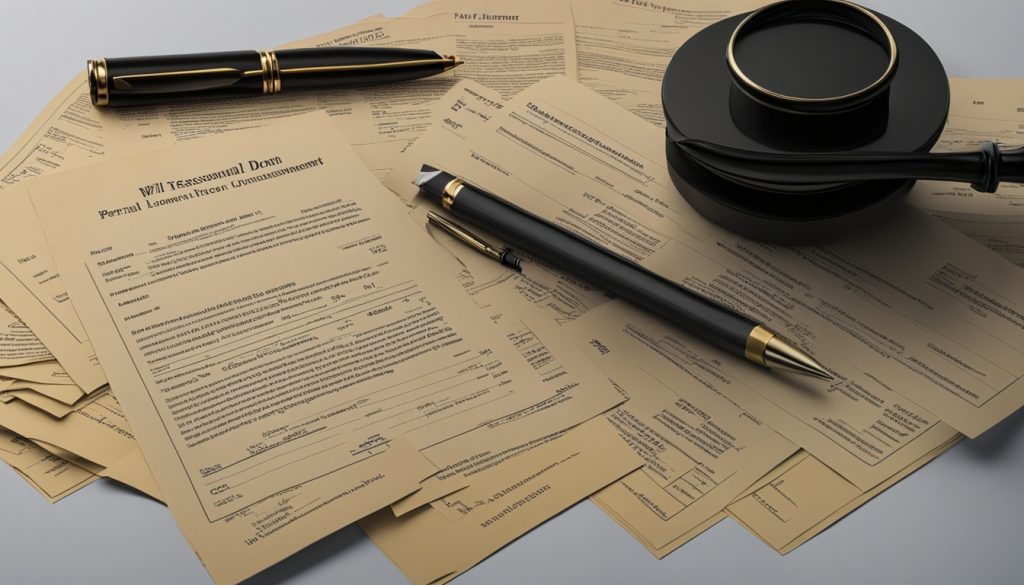
Key Terms Defined
Grasping the essence of personal loans and estate settlement is crucial for adept financial management. This segment demystifies personal loans and sheds light on essential estate and debt concepts. It clarifies the intricacies of liabilities and rights during the estate settlement process.
What is a Personal Loan?
Personal loans are unsecured financial instruments, not requiring collateral. They grant borrowers a set amount, which they repay over time through fixed installments. If a borrower dies while repaying the loan, the lender might forgive the remaining balance. This ensures the deceased’s family is not burdened with the debt. Selecting reputable lenders is advisable to prevent financial strain on loved ones in such situations.
Estate and Debt Concepts
Debt management is paramount in estate settlement. An estate encompasses all assets and liabilities left behind by a deceased individual. During settlement, debts are given top priority. Lenders can pursue unsecured debts like personal loans, credit cards, and medical bills from the estate. The estate’s assets must first settle these debts before heirs receive any inheritance. In community property states, marital debts are often considered joint obligations. A thorough understanding of debt and assets in an estate is vital for fulfilling all financial obligations.

Impact on Borrowers After Lender’s Death
The emotional and financial impact of a lender’s death on borrowers can be profound. When faced with the need to continue repaying personal loans after the lender’s demise, I often feel overwhelmed. Dealing with new representatives or the heirs of the lender’s estate adds a layer of complexity. This situation makes me question my obligations and the processes involved.
It is crucial for borrowers to understand that the responsibility for the loan remains unchanged, even after the lender’s passing. This fact underscores the importance of maintaining clear communication with the new representatives handling the loan. I must ensure I am well-informed about any changes to my repayment structure and terms.

Financial planning, such as discussing mortgage protection insurance, can offer peace of mind. This coverage aims to protect my loved ones from being burdened with debt. If multiple heirs agree to take over the mortgage, they can become co-borrowers. In cases where I hold a reverse mortgage, co-borrowers can still access loan benefits as long as they meet all agreement requirements.
Understanding their options helps borrowers navigate this challenging time. For instance, if heirs assume a mortgage, they usually won’t need to requalify, making the transition smoother. Working directly with the mortgage servicer can also simplify the process for heirs, especially when legal assistance is sought. Planning ahead can prevent disputes and ensure a seamless transition.
In summary, the journey can be daunting, yet preparation is key. The responsibility of loan repayment does not diminish after the lender’s death. Recognizing this fact allows me to take proactive steps in managing my financial obligations while also honoring the legacy of the lender.
Who is Responsible for the Debt?
After a lender’s death, understanding debt responsibility is key for both borrowers and their families. The situation with debt can be complex, especially with personal loans and the role of executors. We’ll look into the duties of joint account holders, cosigners, and executors in these scenarios.
Joint Account Holders and Cosigners
For personal loans with joint accounts, both parties share the debt equally. If one dies, the other becomes fully responsible for the loan. Cosigners, on the other hand, are also fully liable for the debt if the primary borrower can’t pay. It’s crucial for anyone with a cosigner to grasp these risks before taking out a loan.
Role of Executors
Executors are crucial in managing the deceased’s estate and settling debts. They use the estate’s assets to pay off debts before giving out any remaining funds. If the estate lacks enough assets, it might become insolvent, making distribution harder. Executors must settle all creditor claims within three to six months, following state laws.
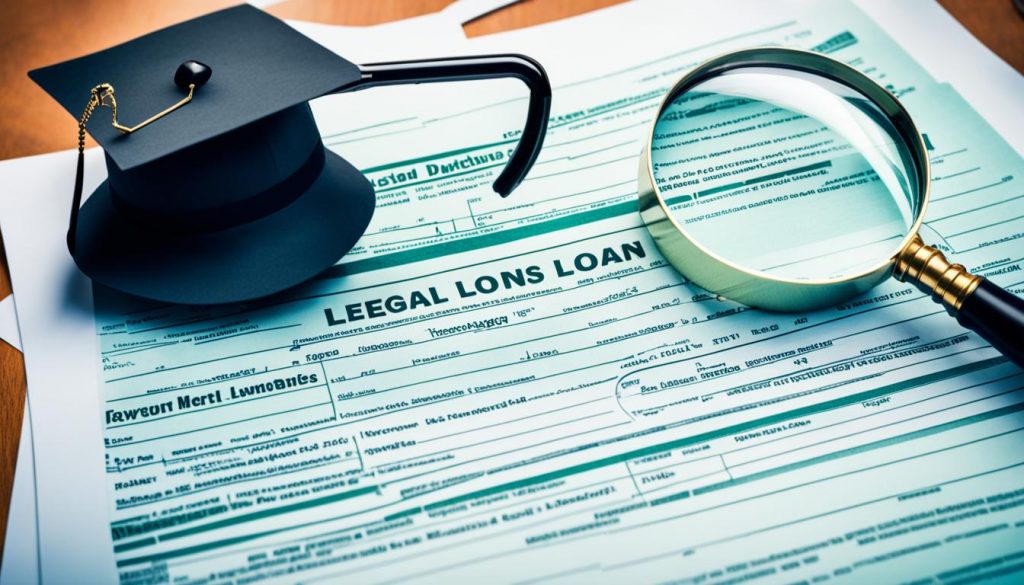
Personal Loans and Deceased Lender
Understanding the relationship between personal loans and a deceased lender is crucial for borrowers. When a lender passes away, personal loans become part of the lender’s estate. This means the responsibility for these debts transfers to the estate, rather than disappearing altogether. It’s essential to recognize that debts remain binding and do not simply vanish with the lender’s death.
The settlement of personal loans relies heavily on the role of the personal representatives, also known as executors of the lender’s estate. Their duty includes gathering all estate assets, which encompass outstanding loans made to the deceased. Executors must resolve these debts before distributing any remaining assets to beneficiaries. If a loan is specified in a Will, personal representatives can deduct the outstanding amount from a beneficiary’s share, ensuring that all debts are addressed appropriately.
In cases where loans lack formal documentation, disputes may arise, complicating the repayment process. Given that personal loans and deceased lender responsibilities often intersect with legal and financial obligations, clear documentation serves to simplify the situation for heirs and personal representatives. The lack of written agreements can lead friends and family members to treat loans as gifts, complicating the estate settlement process.

In summary, personal loans owned by a deceased lender become an integral part of the lender’s estate, making it vital for personal representatives to manage these debts professionally and legally. The continuation of financial obligations following a lender’s death ensures that responsible loan practices remain in place, benefiting both borrowers and the lender’s estate.
Rights of Borrowers in Case of Lender’s Death
When a lender passes away, borrowers face a complex situation. It’s crucial to grasp the borrower rights at this juncture to safeguard my financial well-being. Typically, the estate takes on the responsibility of repaying personal loans, not the borrower. This means debts persist and are part of the estate’s obligations, encompassing all assets and liabilities.
Personal representatives or executors oversee the repayment process. They collect debts owed to the deceased and settle all estate debts, including personal loans. It’s vital for me to possess written documentation of my loan agreement to prevent any confusion with the estate regarding repayment conditions.
Occasionally, a will might dictate whether outstanding loans are forgiven or repaid, influencing the beneficiaries. I must recognize that any unpaid loans could be subtracted from my inheritance, based on the lender’s estate planning before their death.
Knowing my rights as a borrower empowers me to manage this intricate scenario effectively. I can dispute any unjust claims against me, ensuring the legitimacy of repayment demands and managing my debt. Strategic estate planning can alleviate financial strain on my family, including the utilization of mortgage life insurance for securing property loans.
| Aspect | Details |
|---|---|
| Debts | Do not disappear; they are settled from the lender’s estate. |
| Estate’s Responsibility | Executors must collect debts and manage estate accounts. |
| Loan Documentation | Crucial for avoiding disputes regarding repayment terms. |
| Will Provisions | Outstanding loans may be forgiven or repaid as specified. |
| Beneficiary Impact | Outstanding loans may reduce the beneficiary’s share of the estate. |

Estate Settlement Processes
When a lender dies, understanding the estate settlement processes is vital, especially for personal loans. The probate process manages debts and assets after someone passes away. It ensures debts are paid and protects the rights of those who inherit.
Probate and Personal Loans
Probate begins after a lender’s death, reviewing their financial obligations, including personal loans. A court checks the will and distributes assets under probate. Personal loans, being unsecured debts, fall within this process. An executor is chosen to settle debts before giving out assets to heirs.
Prioritizing Debt Payments
After a lender’s death, paying off debts requires a strategic approach. Laws in each state guide how debts are settled. For instance, in community property states, marital assets might be used to pay off debts after a spouse dies. Here’s a table that outlines key factors in prioritizing debt payments during estate settlement:
| Type of Debt | Typical Payment Responsibility | Potential Impact on Estate |
|---|---|---|
| Medical Debt | Usually paid from the estate | Can diminish overall estate value |
| Credit Card Debt | Estate unless joint account holders | Standard liability for the estate |
| Personal Loans | Estate covers payments | Typically handled in probate |
| Secured Debt | Estate or beneficiaries may be pursued for assets | Asset seizure possible for unpaid debts |
| Unsecured Debt | Managed by the estate executor | Can lead to unpaid debts if estate lacks assets |

Community Property States and Debts
In community property states, couples share debts equally when one spouse dies. This is true in about 22% of the U.S. These states include Arizona, California, Idaho, Louisiana, Nevada, New Mexico, Texas, Washington, and Wisconsin. It’s vital for couples to understand this when planning for the future.
Debts considered community property can affect the surviving spouse. Each state has its own rules, but in these states, both spouses are usually on the hook for the debts. This means the surviving spouse could face financial challenges after the death of their partner, especially with co-signed loans or joint credit accounts.
Alaska lets couples choose community property, and Florida, Kentucky, South Dakota, and Tennessee allow property in trust to be seen as community property. This shared liability underlines the importance of couples discussing their finances and making plans together.
| Aspect | Details |
|---|---|
| Percentage of Community Property States | 22% |
| Number of Community Property States | 9 (AZ, CA, ID, LA, NV, NM, TX, WA, WI) |
| States Allowing Opt-in Community Property | 1 (Alaska) |
| States with Trusts Recognized as Community Property | 4 (FL, KY, SD, TN) |
| Debt Responsibility for Surviving Spouses | Must use joint property to cover marital debts |
| Factors Affecting Debt Collection | Debt collectors cannot imply personal responsibility for deceased debts |
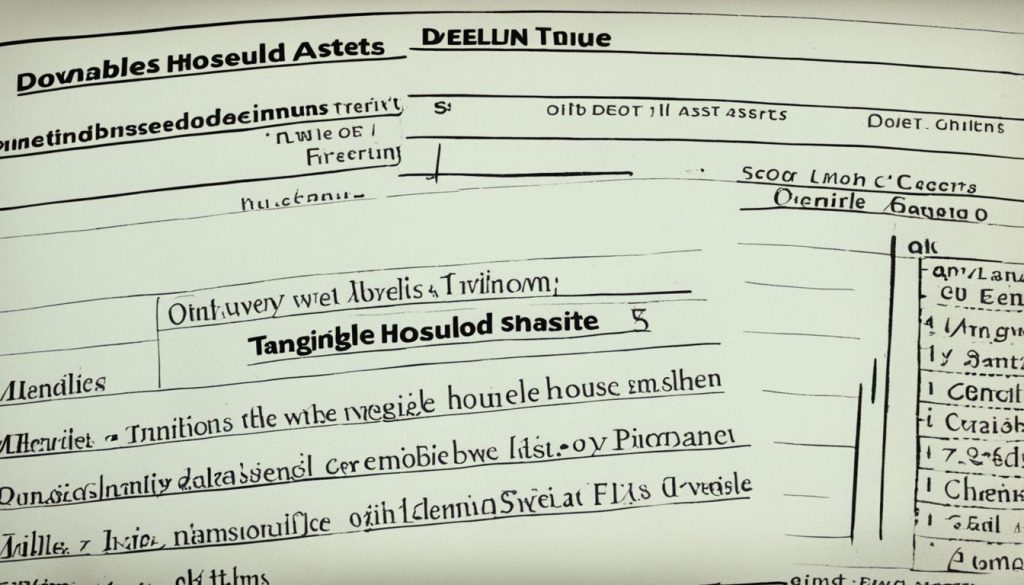
What Happens if the Estate Cannot Settle the Debt?
Managing an estate with outstanding debts is a complex task. It’s essential to understand the consequences if an estate cannot settle its debts, particularly for heirs and beneficiaries. If an estate lacks sufficient assets, all debts incurred by the deceased must be considered. This situation raises questions about the next steps and outcomes for those left behind.
Creditors typically recover their payments from the estate’s available assets. However, if there are few assets, some debts may remain unpaid. This can negatively affect credit ratings and inheritance rights. In community property states, surviving family members might be liable for certain debts their deceased partner incurred.

Debt collectors can only contact specific individuals like spouses, parents of minors, or appointed representatives. They must provide debt validation information quickly, as per the Fair Debt Collection Practices Act (FDCPA). This ensures transparency about the outstanding debts.
For those expecting an inheritance, legal advice is crucial. It helps clarify debt responsibilities and manage creditor communications. If an estate is insolvent, the order of priority is clear: fees, funeral costs, taxes, and then debts. Without enough assets, discharging debts might leave personal liabilities to surviving spouses or heirs, especially in nine community property states.
In summary, the consequences of an estate defaulting on its debts are complex and require careful management. Seeking legal advice is vital for navigating the uncertainties surrounding unresolved debts and inheritances.
| Aspect | Details |
|---|---|
| Estate Assets | Only available assets are used to settle debts. |
| Creditors | Have 3 to 6 months to make claims on the estate. |
| Debt Status | Unpaid debts may impact credit ratings. |
| Community Property States | Surviving spouses may be liable for certain debts. |
| Legal Advice | Recommended for heirs exploring debt responsibilities. |
Loan Documentation: Proof of Debt
Loan documentation is key to managing debt obligations effectively. It acts as a formal record of the agreement between the lender and the borrower. Without it, disputes over repayment can occur, especially if the lender dies. A written agreement helps clarify the borrower’s post-death obligations.
When a lender dies, their executors must gather all assets, including loans. Having secure loan documentation is crucial to prove the debt the borrower must pay. Without it, disputes could arise among heirs and creditors.
Personal debts don’t disappear with the death of either party. They can be seen as gifts if stated in a Will. Thus, clear documentation is essential to show the loan’s purpose. Jointly-held debts go to the co-borrowers or cosigners, highlighting the need for clear agreements.
Dealing with these complexities shows the importance of proper loan documentation. It proves debt obligations and protects everyone involved. This approach helps executors and ensures obligations are met after the lender’s death.
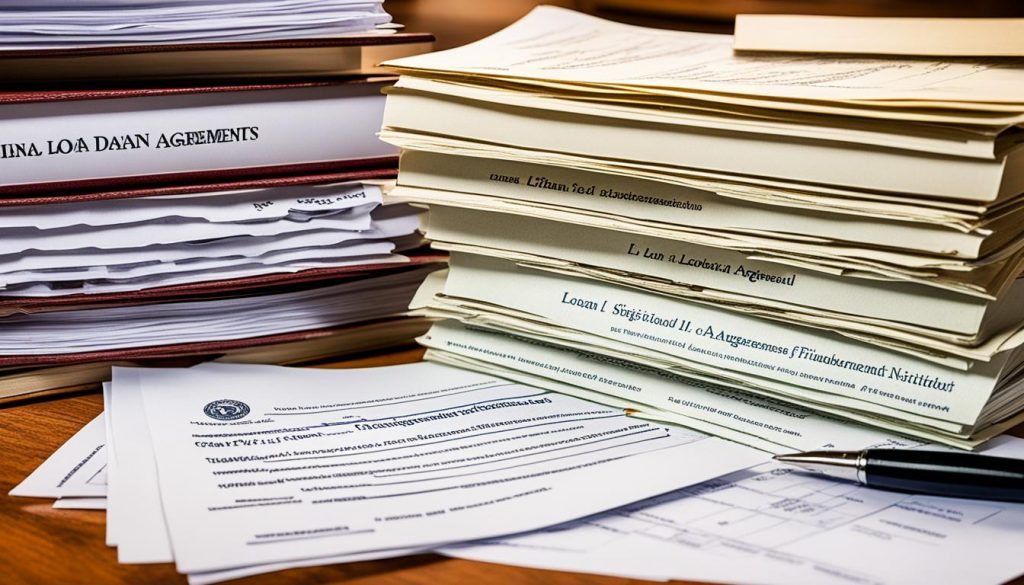
Legal Recourse for Borrowers
When a lender passes away, it’s crucial to grasp the legal options for borrowers. Navigating personal loans and legal rights can be complex, especially during a stressful period. I start by collecting all relevant loan documents, including the agreement and any lender communications. This is crucial for resolving disputes with the lender’s estate.
Legal advice may be necessary when disagreements emerge. If repayment or debt settlement issues arise, consulting a probate law expert can clarify my position. It’s important to confirm that the estate is aware of any loan cancellation, preventing unexpected repayment demands.
It’s vital to know federal laws that shield me from loan acceleration due to the lender’s death. These laws allow me to manage my debt responsibly without the pressure of immediate repayment. If disputes persist, mediation can be a viable option to resolve issues fairly, avoiding legal conflicts.
Should I inherit property with a mortgage, understanding my rights as a successor is essential. I can take over the loan under certain conditions, ensuring all procedures are followed correctly. Communicating with the lender to clarify my status can prevent foreclosure issues.
Here’s a table summarizing the steps I may take regarding legal recourse for borrowers when a lender dies:
| Step | Action | Considerations |
|---|---|---|
| 1 | Gather Documentation | Need for loan agreements and communications |
| 2 | Consult Legal Authorities | Discuss potential disputes and seek guidance |
| 3 | Understand Federal Protections | Familiarity with rights against loan acceleration |
| 4 | Mediation for Disputes | Avoid legal battles through negotiation |
| 5 | Inherit Mortgaged Property | Assessment of assuming the loan and related processes |
In summary, being proactive with my personal loans and legal rights helps me navigate this difficult situation effectively. Understanding the legal options available ensures I protect my financial interests as a borrower during significant changes.
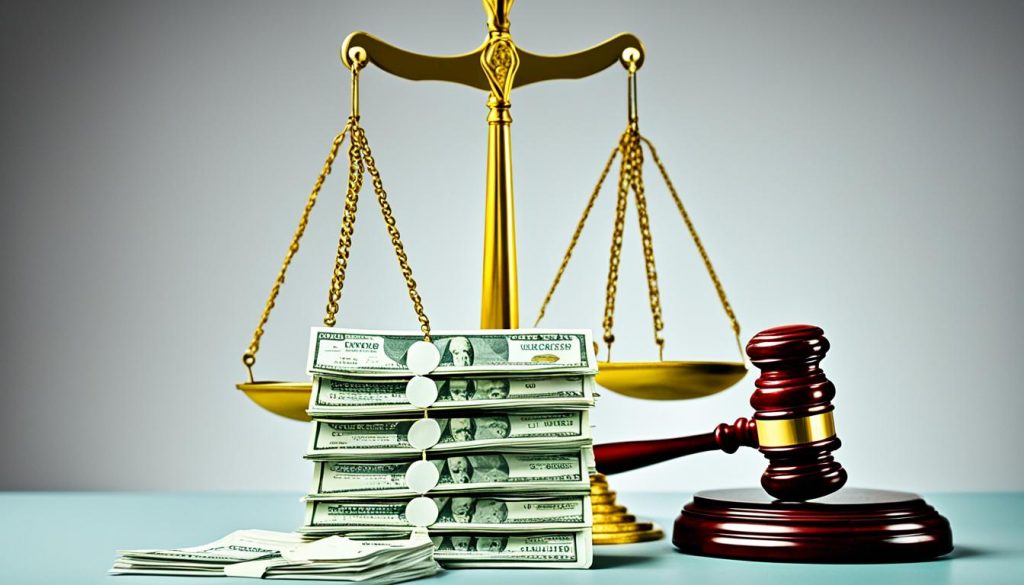
Understanding the Impact on Credit Scores
The death of a lender can significantly affect borrowers, especially in terms of credit scores. Personal loans, while aiding in financial management, can lead to credit implications that are crucial to understand. This knowledge is vital for effectively navigating the aftermath.
Upon a lender’s demise, the stability of my personal loan may be jeopardized. Payment history is a key factor, making up 35% of the credit score calculation. Missing payments, whether due to confusion or lack of communication from the lender’s estate, can negatively impact my credit score. This highlights how personal loans can lead to adverse credit implications if not managed swiftly.
Many borrowers turn to personal loans for debt consolidation or settling existing debts. Missing payments can lead to severe consequences, making future loans or credit more challenging to obtain. It’s essential to consider interest rates and origination fees to mitigate any unfavorable conditions post-lender death.
To prevent potential issues, I can take several steps:
- Keep a close eye on payment due dates.
- Communicate with the new servicing entity to clarify the loan’s status.
- Consider debt consolidation to lower monthly payments and simplify repayment structures.
These strategies can help me maintain a healthy credit score even if the lender’s death has changed my loan’s status. It’s crucial to remain proactive, preventing uncertain situations from impacting my credit profile.
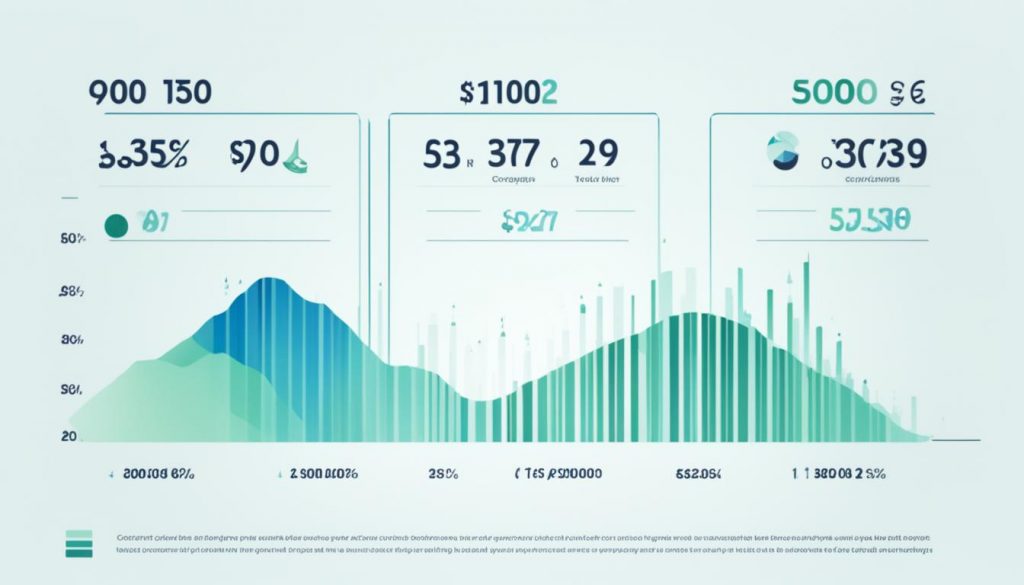
Protecting Yourself When Borrowing
In today’s fluctuating financial world, it’s essential to protect oneself when borrowing. Whether I’m looking at a personal loan or managing my debts, I focus on grasping the loan’s terms thoroughly. Having comprehensive documentation acts as my safeguard, providing clear records of all agreements. This method not only promotes transparency with lenders but also allows me to easily recall crucial details in unforeseen situations.
Effective communication with my lender is a cornerstone of borrower protection. By keeping my lender abreast of any financial hurdles, I can negotiate terms more smoothly and avoid escalations. Additionally, knowing my rights empowers me to navigate the complexities of borrowing, especially in scenarios like a lender’s demise. The Fair Debt Collection Practices Act, for instance, protects my family from unfair debt collection practices.
Lastly, I remain vigilant about state laws on debt responsibility, particularly in community property states like California and Texas, where both spouses are liable for debts. By grasping these legal intricacies, I am better equipped to make informed borrowing decisions. This ensures I’m prepared to tackle any challenges that may come my way during my borrowing journey.
